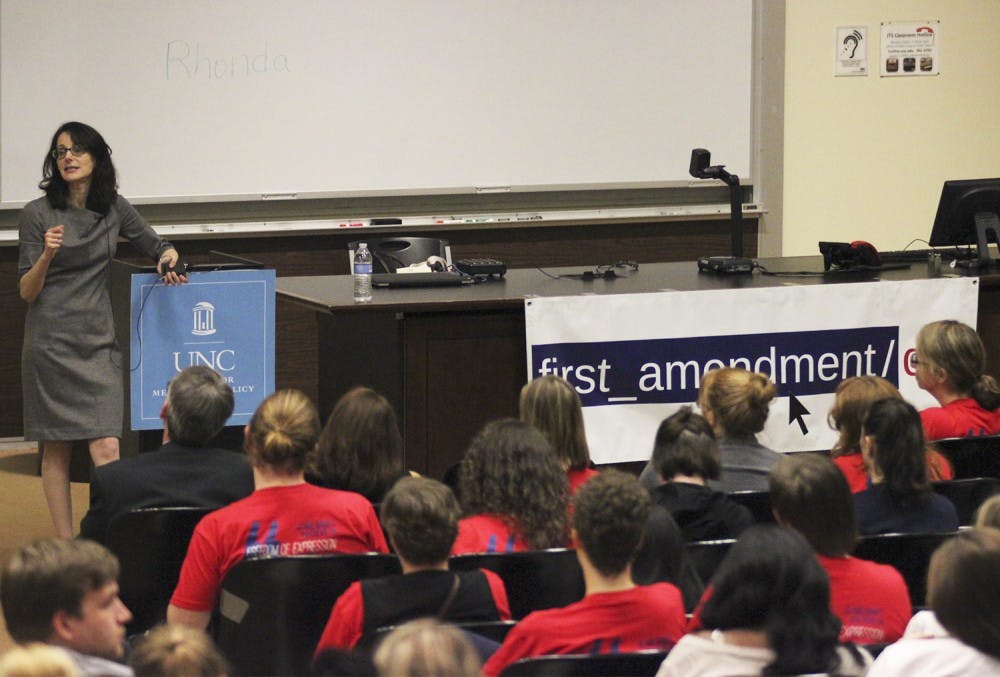After seven years of working to protect victims of online crimes, Citron said she thinks laws, private companies and public conversations have come a long way.
Citron, a law professor at the University of Maryland, spoke to about 300 students and faculty Tuesday night in Carroll Hall as part of First Amendment Day, organized by the UNC Center for Media Law and Policy.
Her speech centered on the idea that certain types of harmful speech online take away the voices of others.
“I can’t be a digital citizen if I’m under assault,” Citron said a victim of online harassment told her.
She shared the stories of two victims of online abuse, who Citron said represent hundreds of thousands of victims a year.
Anita Sarkeesian, a media critic, was attacked online by a gang of harassers who made an online game that showed Sarkeesian getting beaten up. She has since been repeatedly threatened, Citron said.
Holly Jacobs suffered in her professional and personal life after intimate images and videos she shared with her ex-boyfriend ended up on more than 300 pornography sites around the Web when she was a graduate student at Florida International University.
The conversation on how to make sure the internet is a safe space for speech is especially relevant now, said Tori Ekstrand, a UNC journalism professor who specializes in media law and First Amendment issues.



